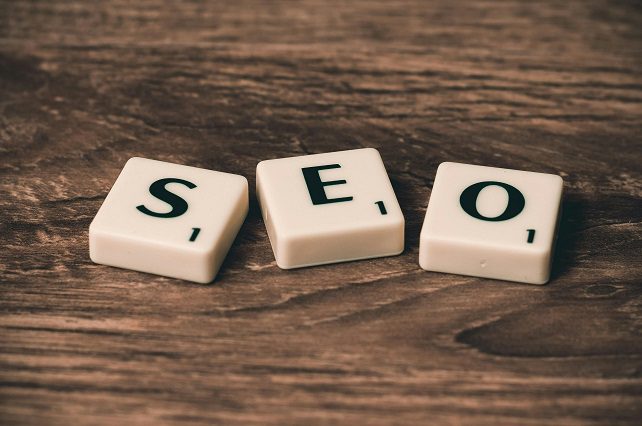Search Engine Optimization (SEO) plays an important role in getting your website to rank well in search engines like Google. If you are new to SEO marketing or want to better understand it, you may have come across the terms On-Page SEO and Off-Page SEO. While both are important for increasing your website’s rankings, they have very different approaches and the impact they create. In this blog, we break down these concepts in a simple and convenient way.
For expert guidance on SEO optimization and to improve your website’s performance, visit DigiErde.

What is On-Page SEO?
On-Page SEO refers to all the optimization techniques you apply directly to your website. These practices help search engines understand your content and ensure your site is user-friendly. Think of it as tuning up the parts of your website that you can control.
Key Elements of On-Page SEO
1. Content Optimization
Content is king in SEO optimization. Using the right SEO keywords naturally in your content is crucial. For example, if your content is about “local SEO,” you need to include this term strategically to help Google understand the topic.
2. Title Tags and Meta Descriptions
The title tag and meta description are the first things users see on search engine results pages (SERPs). They should include your primary SEO keywords to improve your Google ranking and attract clicks.
3. Header Tags (H1, H2, H3, etc.)
Header tags structure your content, making it easier to read. They also give search engines clues about the most important topics on your page.
4. URL Structure
A clean and descriptive URL is essential for good website ranking. For instance, a URL like yourwebsite.com/onpage-seo-guide is better than something random like yourwebsite.com/123xyz.
5. Internal Linking
Linking to other pages on your website helps both users and search engines navigate your site. It also spreads “link juice” across your site, improving overall SEO ranking.
6. Image Optimization
Using high-quality images with descriptive alt tags improves user experience and helps search engines understand the visual content on your page.
7. Mobile-Friendliness
In today’s world, a SEO website must be mobile-friendly. With Google prioritizing mobile-first indexing, ensuring your site is responsive is non-negotiable.
8. Page Speed
A fast-loading website improves user experience and plays a vital role in Google ranking.
What is Off-Page SEO?
While On-Page SEO happens on your website, Off-Page SEO focuses on building your website’s authority and reputation across the internet. It includes activities done outside your site to improve its trustworthiness and relevance.

Key Elements of Off-Page SEO
1. Backlinks
Building high-quality backlinks is the cornerstone of Off-Page SEO. Links from reputable websites signal to search engines that your content is valuable. For example, if a popular blog links to your page about SEO optimization, it can significantly boost your SEO ranking.
2. Social Media Marketing
Sharing your content on social media can drive traffic to your website and increase its visibility. While social signals (likes, shares, etc.) may not directly influence rankings, they amplify your reach.
3. Guest Blogging
Writing articles for other websites helps you gain exposure and build high-quality backlinks to your site.
4. Online Reviews
Positive reviews on platforms like Google My Business enhance your credibility, especially for local SEO.
5. Influencer Outreach
Partnering with influencers in your niche can help spread the word about your brand and attract backlinks.
6. Social Bookmarking
Submitting your content to platforms like Reddit or Pinterest can drive traffic and boost your visibility.
On-Page vs. Off-Page SEO: The Main Differences
Understanding the difference between On-Page and Off-Page SEO is essential for a well-rounded SEO marketing strategy.
| Aspect | On-Page SEO | Off-Page SEO |
| Focus | Optimizing elements on your own website | Building trust and authority off your site |
| Control | You have full control over implementation | Relies on external factors like backlinks |
| Examples | Keywords, meta tags, content, page speed | Backlinks, social media, guest blogging |
| Tools | SEO analyzer, keyword research tools | Backlink tools, social media platforms |
| Impact | Improves relevance and user experience | Enhances credibility and domain authority |
Why You Need Both On-Page and Off-Page SEO
To achieve the best results, you can’t focus solely on one type of SEO. A successful strategy balances both. Here’s why:
- On-Page SEO builds the foundation: Without optimized content, fast loading speeds, and mobile-friendliness, your site won’t rank well. Think of it as the engine of your SEO efforts.
- Off-Page SEO boosts authority: Even with a perfect website, you need high-quality backlinks and social proof to climb the search results.
- They complement each other: For example, a well-optimized blog post (On-Page SEO) can attract natural links (Off-Page SEO), which boosts its Google ranking.
How to Improve On-Page and Off-Page SEO
Tips for On-Page SEO
- Conduct thorough SEO keyword search to identify relevant terms.
- Use a SEO analyzer to find and fix issues on your site.
- Regularly update content to keep it fresh and relevant.
- Optimize for voice search by using conversational keywords.
Tips for Off-Page SEO
- Focus on quality over quantity when building backlinks.
- Engage with your audience on social media to drive traffic.
- Create valuable, shareable content that attracts links naturally.
- Work with a SEO specialist or SEO expert to refine your strategy.
How Local SEO Fits Into the Picture
Local SEO is a subset of SEO that focuses on optimizing your online presence to attract local customers. It combines elements of both On-Page and Off-Page SEO. For instance:
- On-Page: Optimizing your content with local keywords like “best pizza near me.”
- Off-Page: Encouraging reviews on Google My Business to improve credibility.
For businesses targeting specific regions, like a local restaurant, local SEO is critical for improving website ranking in your area.
Tools to Help with On-Page and Off-Page SEO
Here are some tools that can simplify your SEO efforts:
- Google Analytics: Tracks traffic and user behavior.
- Ahrefs: Helps analyze backlinks and competitors.
- Yoast SEO: Optimizes your content for On-Page SEO.
- SEMrush: Provides insights into SEO keywords and overall performance.
Conclusion
Understanding the difference between On-Page and Off-Page SEO is the first step in mastering search engine marketing. Both play unique but equally important roles in improving your SEO website and boosting its Google ranking. While On-Page SEO ensures your site is optimized for users and search engines, Off-Page SEO builds trust and authority in the broader online community.
By combining these strategies and using tools like a SEO analyzer, you can create a robust plan that drives results. Whether you’re a SEO specialist, a business owner, or a budding SEO expert, mastering both aspects will help you achieve long-term success.
For professional assistance with SEO optimization and boosting your website ranking, visit our website: DigiErde.


Add a Comment